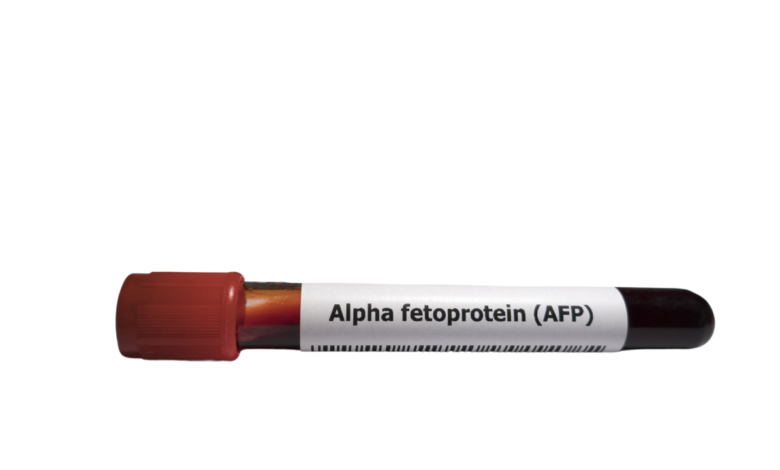Alpha-Fetoprotein (AFP) Screening

What is Alpha-Fetoprotein (AFP) Screening?
Alpha-fetoprotein (AFP) screening is a prenatal blood test used to assess the risk of certain birth defects in the fetus. AFP is a protein produced by the fetal liver and yolk sac. Its levels in the mother’s blood can indicate potential problems.
Why Alpha-Fetoprotein (AFP) Screening is required?
AFP screening is primarily used to detect:
- Neural tube defects: Such as spina bifida and anencephaly, where the brain and spinal cord do not develop properly.
- Abdominal wall defects: Like omphalocele and gastroschisis, where the baby’s intestines or other organs protrude through a hole in the abdominal wall.
which are the method of Alpha-Fetoprotein (AFP) Screening?
AFP screening involves a simple blood draw from the mother. The blood sample is then analyzed to measure the AFP levels.
who should go for Alpha-Fetoprotein (AFP) Screening?
AFP screening is generally recommended for all pregnant women between 15 and 20 weeks of gestation.
What are the results of Alpha-Fetoprotein (AFP) Screening?
An elevated AFP level in the mother’s blood may indicate an increased risk of neural tube defects or abdominal wall defects. However, it’s important to note that a high AFP level doesn’t necessarily mean the baby has a defect. Other factors, such as multiple pregnancies or inaccurate gestational age, can also affect AFP levels.
A low AFP level may be associated with chromosomal abnormalities, such as Down syndrome. However, this is less common.
What are the components of Alpha-Fetoprotein (AFP) Screening?
In addition to AFP, some AFP screenings may also include:
- Human chorionic gonadotropin (hCG): A hormone produced by the placenta.
- Estriol: A type of estrogen produced by the placenta and fetus.





